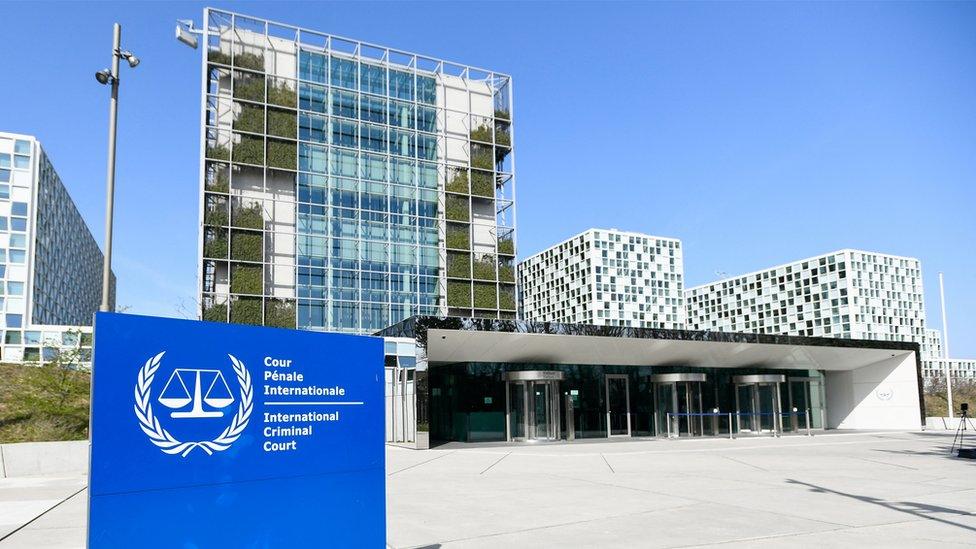Jean-Pierre Bemba denies ICC war crimes charges
- Published
Jean Pierre Bemba will appear before the International Criminal Court to face five charges of war crimes and crimes against humanity
The war crimes trial of Congolese former rebel leader Jean-Pierre Bemba has begun at the International Criminal Court (ICC) in The Hague.
The former vice-president of DR Congo denies murder, rape and pillage in the Central African Republic (CAR).
The ICC chief prosecutor says the trial will show that commanders are responsible for their troops' actions.
Mr Bemba - the most high-profile figure to be tried by the ICC since it began its work in 2002 - denies the charges.
The 48-year-old faces two counts of crimes against humanity and three counts of war crimes, external.
Via his lawyer, he pleaded not guilty to all of the charges as the hearing opened.
Chief ICC prosecutor Luis Moreno-Ocampo told the court that the militiamen who raped and killed hundreds of civilians in CAR in 2002-3 were under Mr Bemba's "effective authority and control".
Describing the rapes as "crimes of domination and humiliation", Mr Moreno-Ocampo said Mr Bemba had turned a blind eye to such attacks and was "even more responsible than his subordinates".
Mr Moreno-Ocampo told the court that its decision would "influence the behaviour of thousands of military commanders" around the world.
At the time of the alleged crimes, Mr Bemba was a militia leader in DR Congo.
His Movement for the Liberation of Congo (MLC) crossed the border from their stronghold in the northern Equateur province into neighbouring CAR to help the president put down a coup attempt.
Politically convenient?
The defence argues that once MLC forces crossed the border, they were under the control of the CAR authorities.
One of Mr Bemba's lawyers, Aime Kilolo, said ahead of the trial: "He will show that at no time could he be associated with allowing rapes or murders... nor did he have effective control of troops, nor was he responsible for discipline."
More than 700 victims are being allowed to take part in the trial. One of their legal representatives said they were still traumatised and needed "to break the silence".
After his forces intervened in CAR, Mr Bemba became a vice-president in DR Congo as part of a 2003 power-sharing deal between the government and various rebel groups to end years of conflict.
Three years later, he stood in DR Congo's first democratic elections, losing a run-off against President Joseph Kabila. His supporters staged sometimes violent protests, claiming he had been cheated of victory.
He was arrested in Brussels in 2008, and handed over to the ICC.
His lawyers have claimed that the trial is intended to remove him from the Congolese political scene - allegations dismissed by both the ICC and the Congolese government.
His is the third ICC case to go to trial - the two previous ones concern the conflict in DR Congo.
Former Liberian President Charles Taylor is also being tried at the The Hague but is being prosecuted by a special war crimes tribunal for Sierra Leone, rather than the ICC.
The ICC was established as a permanent court, so a special tribunal did not have to be set up after each conflict in which war crimes were allegedly committed.
- Published22 November 2010
- Published22 November 2010
- Published7 February
